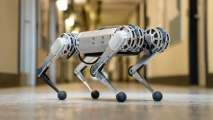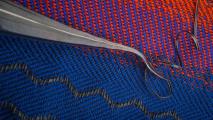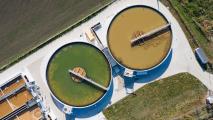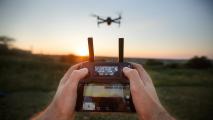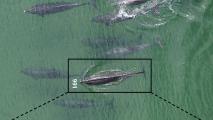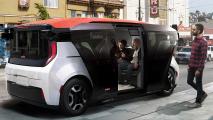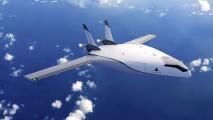
Materials
Though we live in a digital age, material science has shaped history—and it’s far from over. From quantum computers to fusion reactors, breakthroughs in materials will drive the next technological frontier.
More
MIT’s “Mini Cheetah” teaches itself to run 8.7 mph, breaking speed record
The four-legged robots learn how to move through experience — both in the real world and in simulations.
Elon Musk’s Starlink internet helps destroy Russian tanks
An elite Ukrainian drone unit is using SpaceX’s Starlink internet service to coordinate attacks on high-priority Russian military targets.
Swiss scientists are making jet fuel from sunlight and air
The fuel’s reliance on sunlight makes desert areas prime land for production sites, leaving valuable agricultural land available for food.
A fabric that “hears” your heart’s sounds
An MIT team has designed an “acoustic fabric” to convert sound vibrations into electrical signals.
What is 3G and why is it being shut down? An electrical engineer explains
3G networks are built using completely different equipment and algorithms than its newer replacements.
Volkswagen reveals release date for electric Microbus
Volkswagen will begin selling its all-electric ID. Buzz — a modern take on the iconic Microbus — in the U.S. in 2024.
Steering wheels now optional for driverless cars in US
Driverless cars no longer need to have manual controls, according to the National Highway Traffic Safety Administration’s safety standards.
Drones and AI recover a meteorite for the first time
Australian researchers have trained an AI to locate fallen space rocks using footage from autonomous drone surveys.
Oculus exec bets $10,000 we’ll have fully autonomous cars by 2030
An Oculus exec has publicly bet $10,000 that vehicles with Level 5 autonomy will arrive on city streets by 2030.
Win-win: we can make fertilizer by purifying wastewater
Stanford engineers have developed a cost-effective way to convert a toxic byproduct of a wastewater filtration process into useful chemicals.
Ukrainian citizens are using personal drones to spy on Russian troops
Ukraine has called on local drone owners to help the military conduct reconnaissance missions in the wake of Russia’s invasion.
Pregnant dolphins identified by drones for the first time
Using drone photography, University of Aberdeen researchers have been able to identify pregnant dolphins for the first time.
Self-driving cars could transform the world in unexpected ways
Self-driving cars could impact the future of economics, equity, privacy, and city planning.
How close are we to curing blindness?
New approaches to curing blindness are heralding a future in which fewer people have to live life completely in the dark.
GM asks to deploy self-driving car with no steering wheel
GM and Cruise have asked the NHTSA for permission to build and deploy their Cruise Origin, a self-driving car with no steering wheel.
Open source intelligence exposes war as never before
In a new era of open source intelligence, Russia’s invasion of Ukraine can be studied by anyone with the desire to find, and analyze, data available to all.
Diamond-like starfish skeleton unlike any discovered in nature
The skeleton of the knobby starfish has a structure unlike any other found in nature so far, and it could inspire new lightweight ceramics.
Huge cargo drones could soon move goods across the globe
Natilus is developing huge autonomous cargo drones that could cut the cost of air freight by 60% and reduce its carbon emissions by 50%.
“Fly ash” contains rare earth elements needed for electronics
A new method for extracting rare earth elements from fly ash could help end the U.S.’s reliance on China for the valuable metals.
Subscribe to the newsletter



